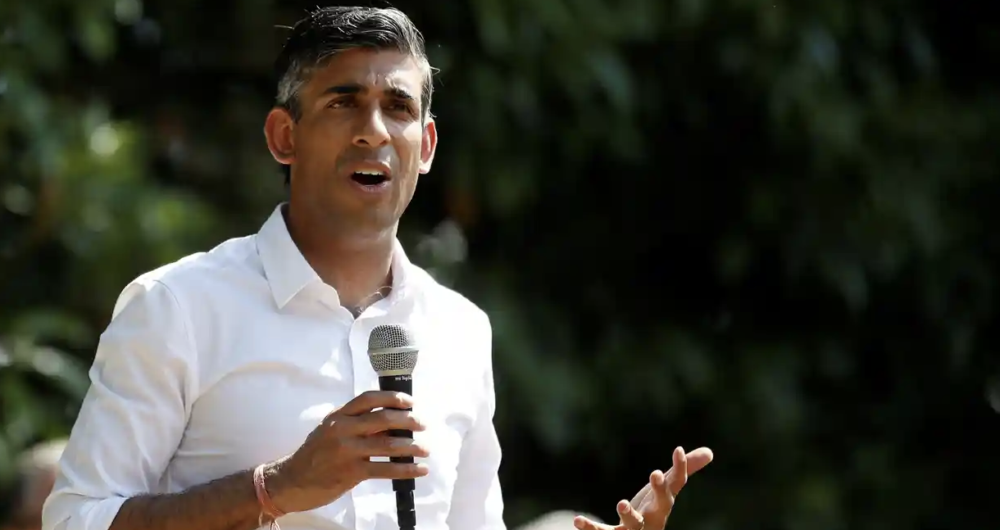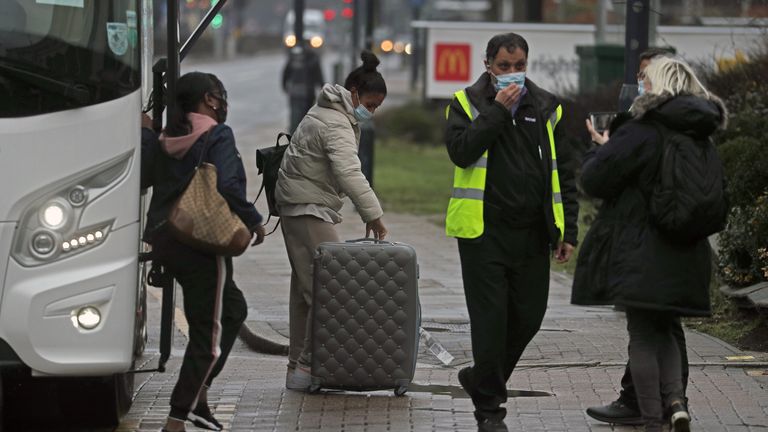Photograph: Peter Nicholls/PA
Rishi Sunak has admitted to taking money from deprived urban areas in order to give it to other parts of the country, according to The Guardian.
The former chancellor, who is standing to be prime minister, made the claim last month while speaking to Conservative party members in Tunbridge Wells, Kent.
In footage obtained by the New Statesman, Sunak said: “I managed to start changing the funding formulas to make sure areas like this are getting the funding they deserved.
“We inherited a bunch of formulas from Labour that shoved all the funding into deprived urban areas and that needed to be undone. I started the work of undoing that.”
Tunbridge Wells has a Tory majority of 14,645 and has been held by the party since the constituency was created in 1974.
An analysis by the Guardian in February found that, under Boris Johnson’s “levelling up” agenda, some of the wealthiest parts of England, including areas represented by government ministers, were allocated 10 times more money per capita than the poorest.
The analysis brought together the four main levelling-up funds for the first time. The future high streets fund, the community renewal fund and the town’s fund have been fully allocated, while the levelling up fund has allocated £1.4bn, with a further £1.8bn still to be announced. A total of £4.7bn has been allocated in England across the four schemes so far.
It is not clear from the video to which funding formula or levelling up fund Sunak is referring.
Labour’s Lisa Nandy, the shadow levelling up secretary, said: “This is scandalous. Rishi Sunak is openly boasting that he fixed the rules to funnel taxpayers’ money to rich Tory shires.
“This is our money. It should be spent fairly and where it’s most needed – not used as a bribe to Tory members. Talk about showing your true colours.”
Sunak’s Conservative colleagues were divided over the footage. The Foreign Office minister Zac Goldsmith said: “This is one of the weirdest – and dumbest – things I’ve ever heard from a politician.”
Jake Berry, the chair of the Northern Research Group of Tory MPs, said that in public Sunak “claims he wants to level up the north, but here, he boasts about trying to funnel vital investment away from deprived areas”.
“He says one thing and does another – from putting up taxes to trying to block funding for our armed forces and now levelling up,” Berry, a Liz Truss supporter, said.
The public accounts committee, parliament’s spending watchdog, has been critical of the lack of rules over the towns fund. The levelling up fund is supposed to create economic growth but with no clarity of what that means and no measurements of success.
Responding to Sunak’s words, Meg Hillier, the chair of the cross-party PAC, told the Guardian: “This is evidence of a deliberate decision to change public spending priorities based on who you know.
“Pork barrel politics is unfair on taxpayers, and the areas that don’t get the funding cannot even begin to qualify for the cash in a game with no rules.”
Sunak is reported to be trailing Truss in the race to succeed Johnson as prime minister, as party members begin voting. But there is still a month of the campaign to go, with the result to be announced on 5 September.
Both candidates will appear at another hustings event on Friday evening, this time in Eastbourne, where they will take questions from Tory members.
Sunak’s campaign did not dispute the video, but argued that he had moved the cash from inner city areas to towns and poorer rural areas.
A source said: “Levelling up isn’t just about city centres, it’s also about towns and rural areas all over the country that need help too. That’s what he changed in the green book and he will follow though as prime minister.”
They added: “Travelling around the country, he’s seen non-metropolitan areas that need better bus services, faster broadband or high-quality schools. That’s what he’ll deliver as prime minister.”
The government was criticised last year for the terms of the £4.8bn levelling up fund, after it emerged that dozens of Conservative regions were placed in the top tier for assistance, despite their relative affluence.
Ministers responded to the backlash by saying they “did not have any of the political influence” suggested and had left the scheme in the hands of civil servants.
In 2020, Robert Jenrick, the then communities secretary, admitted that he and a junior minister approved payments to towns in each other’s constituencies from another government fund earmarked for deprived areas.




